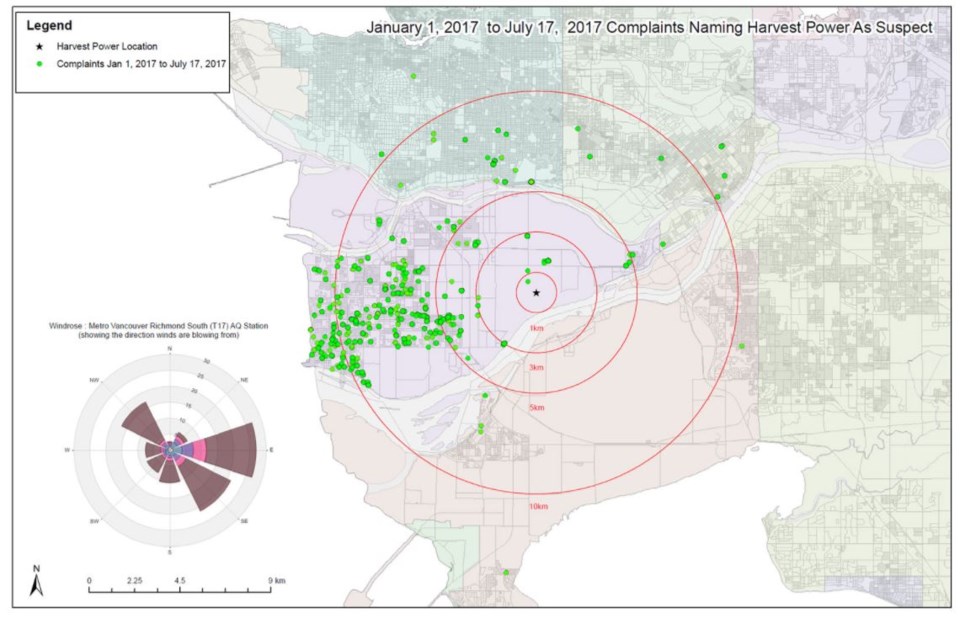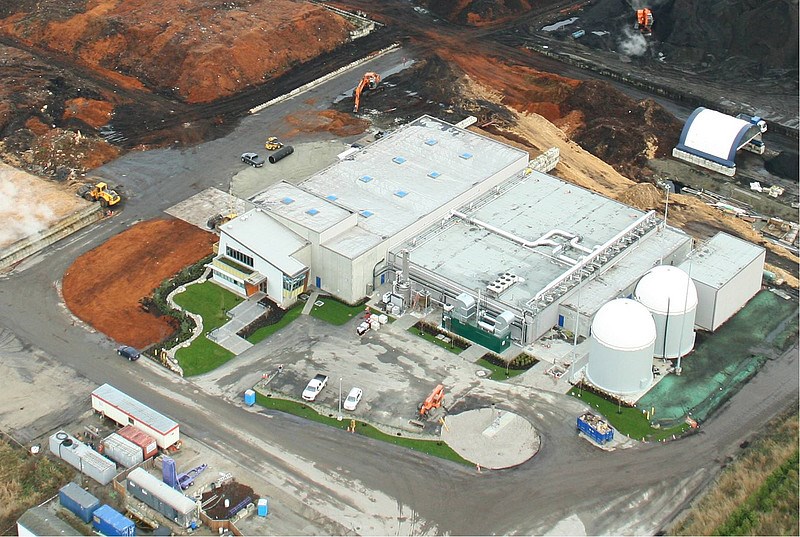A German-based engineering firm was surprised to learn that a key component of Harvest Power’s composting system that it designed has been effectively shut down.
GICON Engineering North America spokesperson Jan Claus told the Richmond News that its anaerobic digester, or “energy garden,” at the Harvest Power composting site is essential for eliminating fugitive odours that have blanketed Richmond for years.
Essentially, stinky compost product goes into an air-tight chamber (“energy garden”) and expels gas, which is then burned for electricity. The end product is solid waste has few odorous compounds.
“Compared to untreated food waste, the solid output from the Energy Garden has a negligible contribution to odour problems experienced in the downstream composting process,” wrote Claus in a letter to the News in January.
“It would be counterproductive to stop the anaerobic digestion process and treat the food waste solely with composting technology. Conversely, since only a small proportion of the total amount of organic waste received by Harvest Power is actually treated in the Energy Garden prior to composting, it would be beneficial if the Energy Garden would be operated as intended and treat as much incoming food waste as it was designed for, as the consequence would be less untreated, odour-rich organic waste being processed in the composting facility,” stated Claus.
In December, Harvest Power CEO Chris Kasper spoke to residents at a public town hall meeting to address what his company was doing to eliminate the foul stench.
He explained that the energy garden produces the foul odours.
“That energy garden. It cost, what? $25 million to build. And we shut it down. And we’ve significantly reduced the amount of green waste coming into the compost facility,” Kasper told the audience.
But Claus said he’s confident in his company’s technology and the technology of biogas electric generators, in general.
“The intensive, odour-producing acidification process takes place within sealed containers in the strict absence of oxygen. The biogas that ultimately results from this process is used to generate electricity for the public grid and heat for use as process heating. It is not released untreated to the atmosphere,” said Claus.
GICON said it reached out to Harvest Power for clarification, after the News paraphrased Kasper’s comments in an article.
“We asked Harvest Power (Gary Aguinaga, SVP, COO Energy Group) for confirmation of this statement. He told us that Chris Kasper’s comment was taken out of the context. He indicated to us that they had curtailed processing food waste in the AD (anaerobic digester) plant as part of their troubleshooting efforts to mitigate the odour problems they are experiencing,” said Claus.
The News then asked Harvest Power spokesperson Stephen Bruyneel to clarify if the energy garden had, in fact, been “shut down.”
“The confusion is around the definition of ‘shut down.’ Harvest voluntarily suspended operations of its anaerobic digester for the digestion of solid organic materials in October 2016. The receiving area of the building is now being used to support our composting operations,” stated Bruyneel.
In a follow-up email, Bruyneel stated the energy garden is now producing a “minimal amount” of electricity to keep it on standby, with the use of a sugar-based liquid fuel.
As such, it’s not being operated as intended, as Claus suggests it should.
In January, following the issuance of a new air quality permit, Metro Vancouver received 425 complaints about Harvest-like odours.
Metro determined the company violated its five-kilometre odour boundary three times, although, in reality, the facility is believed to be releasing odours almost daily, according to residents.
“We are continuing to put all of our efforts into odour reduction and are seeing reductions in emissions from the facility, which has translated into lower odours,” stated Bruyneel.




